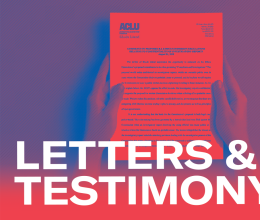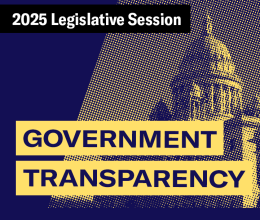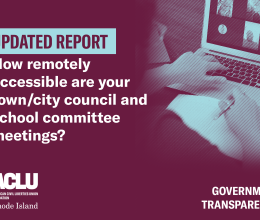In an important victory for open government, R.I. Superior Court Judge Melissa Long today ruled that the Attorney General must waive fees for any additional documents that are delivered as part of state Representative Patricia Morgan’s request for information on how the AG’s Office spent more than $50M in Google settlement funds. Citing an inherent public interest in the records, Judge Long also rejected the AG’s argument that records requestors should have to prove financial hardship in order to have fees waived.
Last week, the ACLU of Rhode Island filed a “friend of the court” brief in support of Rep. Morgan’s request for a waiver of more than $4,000 in fees that the Attorney General is demanding in her quest for additional documents pertaining to the AG’s expenditure of funds from the “Google settlement.” The ACLU’s brief called on the Court to “be guided by the unmistakable remedial purpose of APRA to promote transparency and accessibility to public records.” Morgan had already paid more than $3,700 for records thus far received.
The judge’s decision was not a total victory, however, The ACLU brief had also asked the court to reject the basis offered by the AG for many redactions in the documents that have already been given to Morgan, but Judge Long, ruling from the bench, allowed those redactions to stand.
The brief, filed by ACLU of RI cooperating attorney Lynette Labinger, had criticized an argument by the AG that Morgan should be required to provide evidence of financial hardship or inability to pay for the requested records. Instead, the brief noted: “Even for a person of unlimited resources (and there is no evidence that Morgan is such a person), the imposition of a substantial expense in order to access public records serves as a deterrent where the APRA default clearly favors disclosure and eliminating barriers to open government.” Judge Long today agreed that the statute had no “means” test in deciding whether fees should be waived.
Earlier this month, the ACLU of RI issued a detailed analysis of the Attorney General’s position in the case, raising many of the points contained in the brief.






